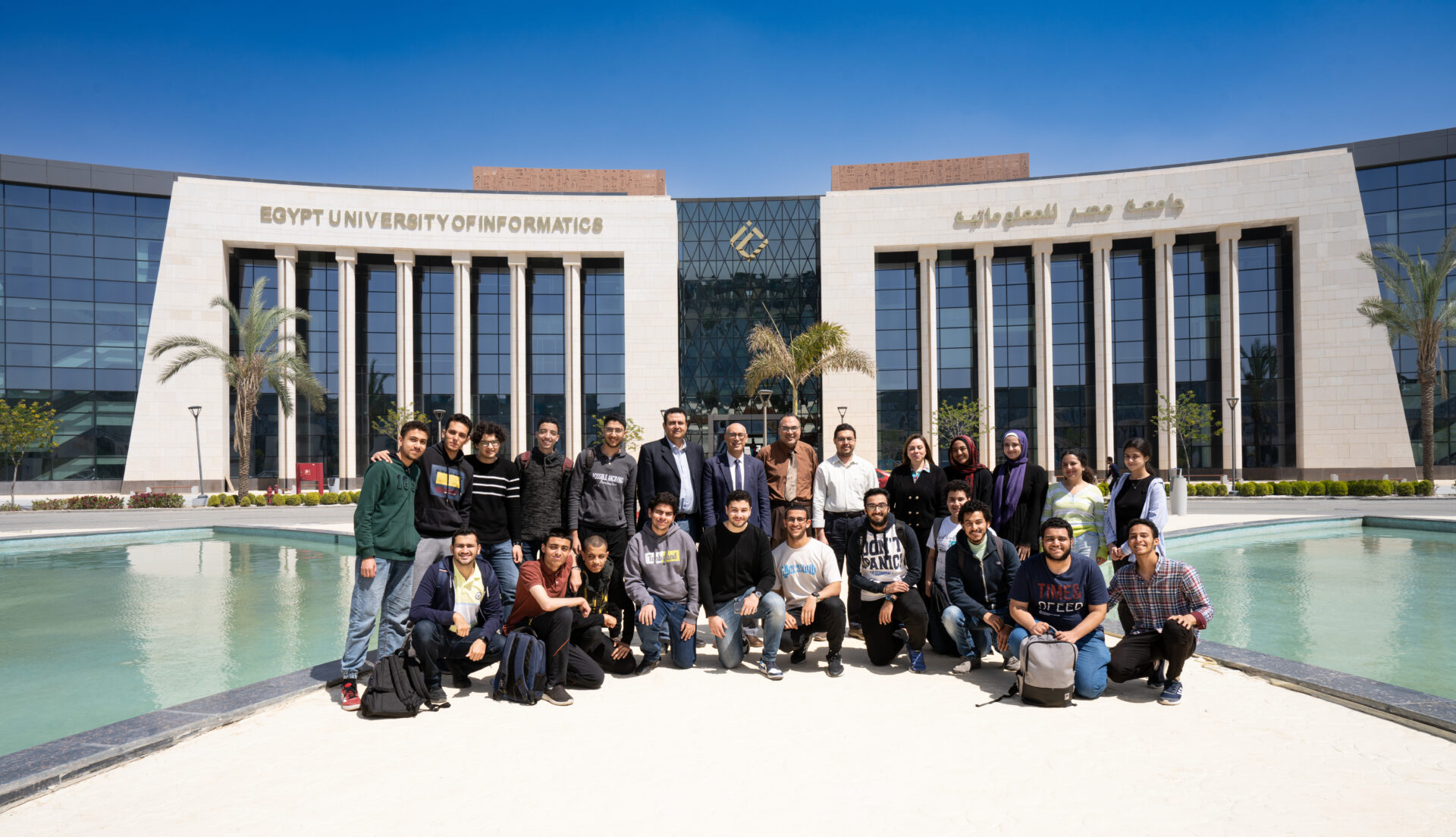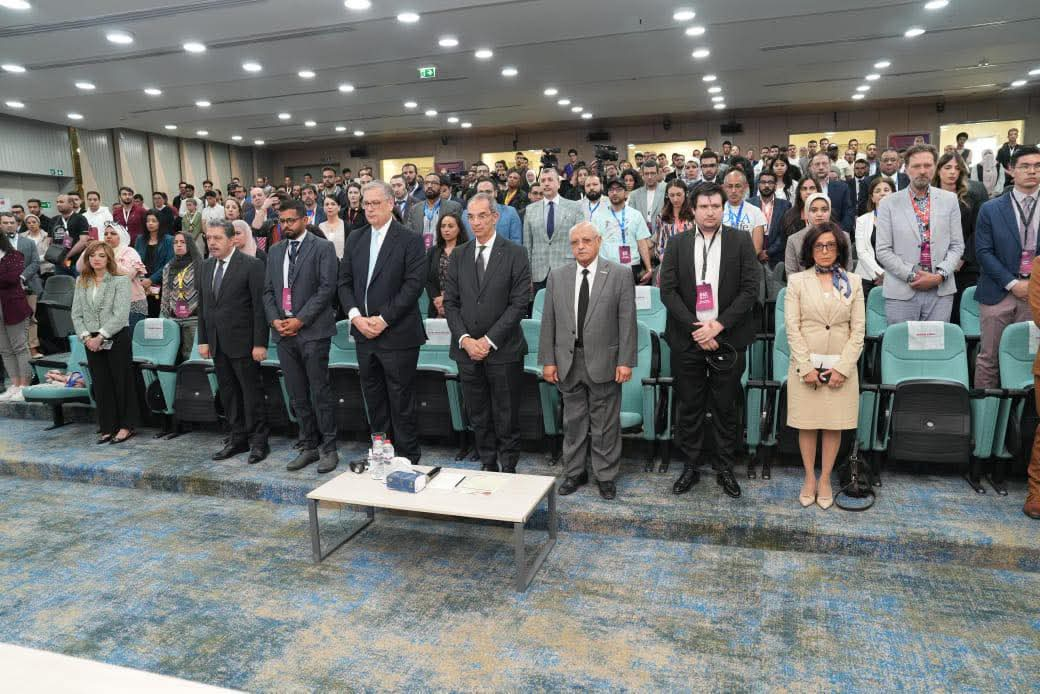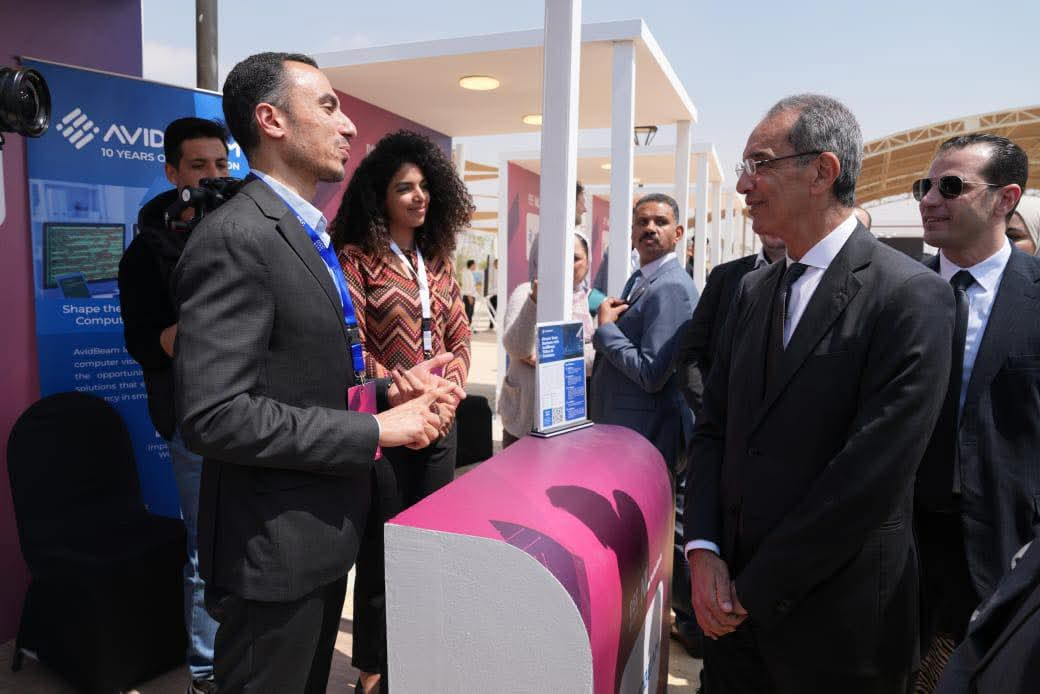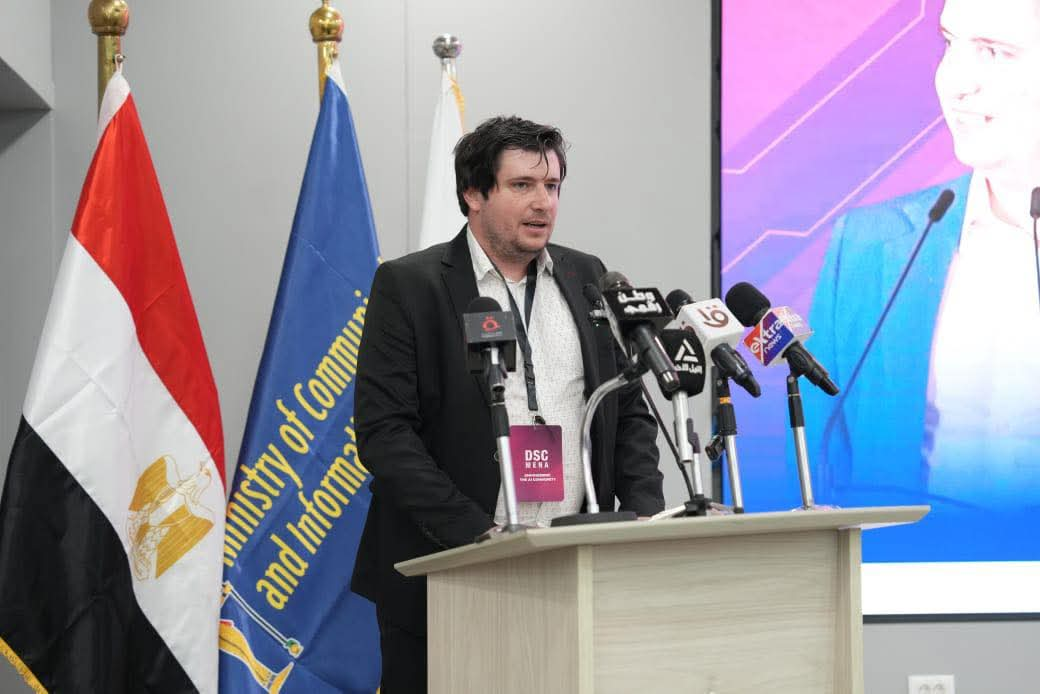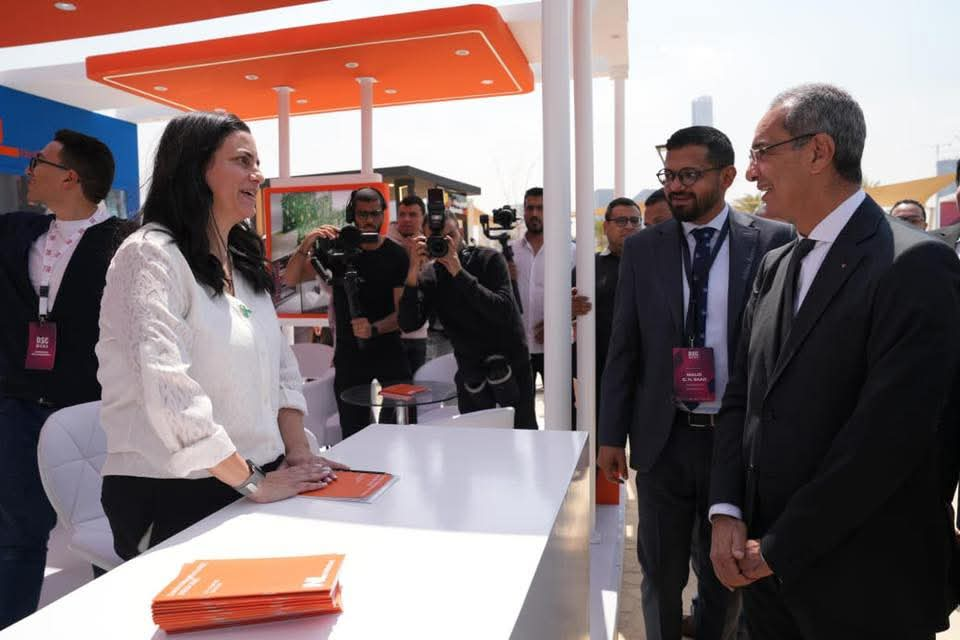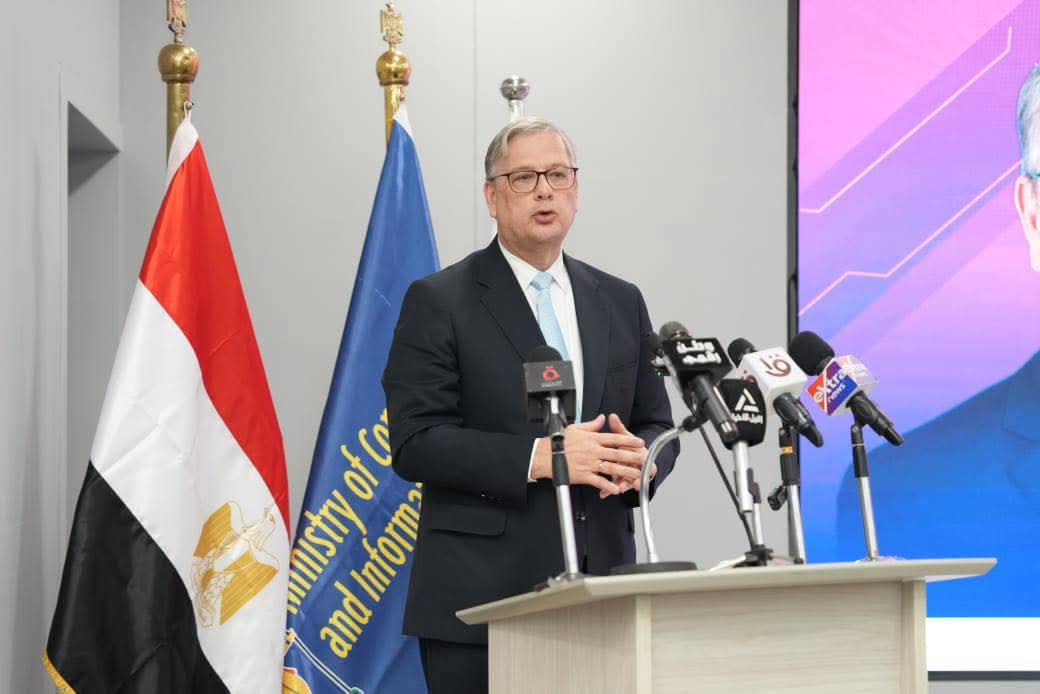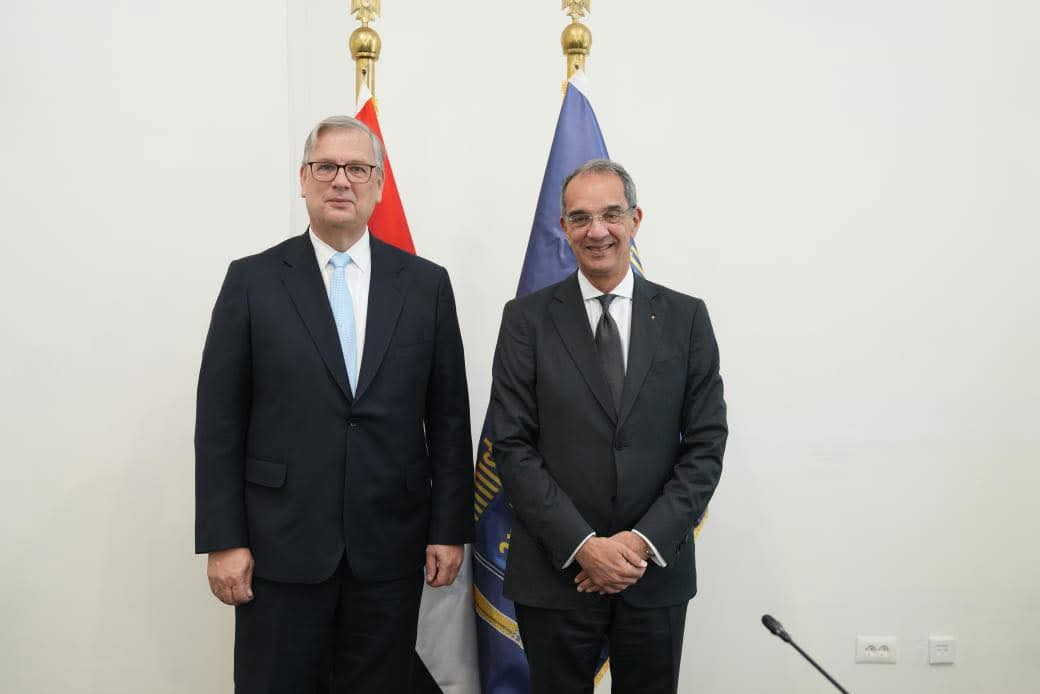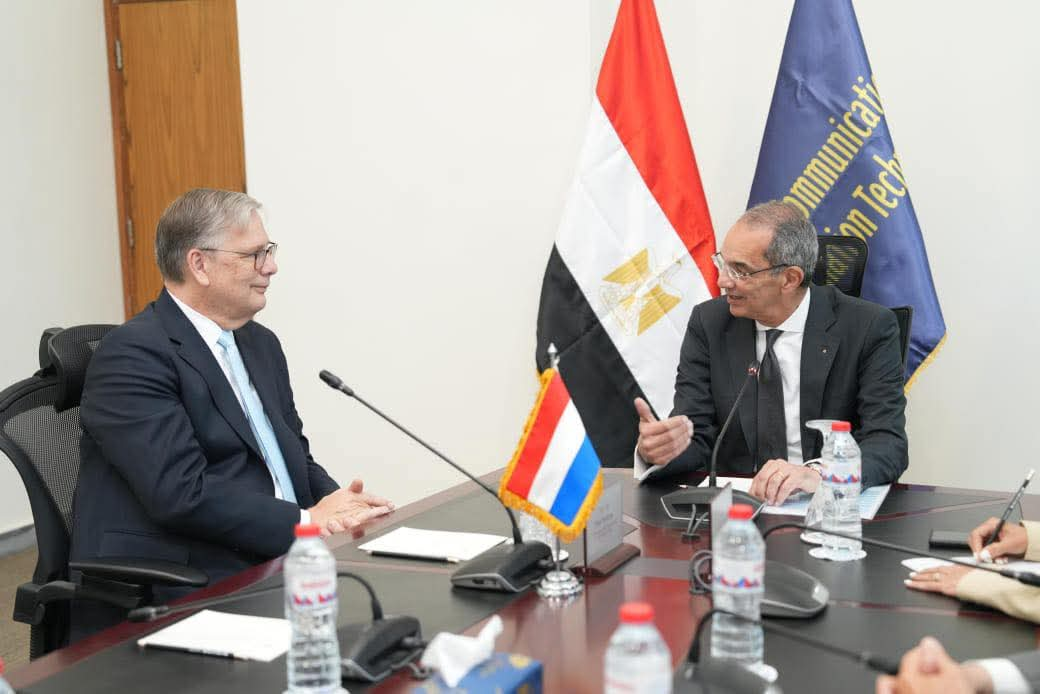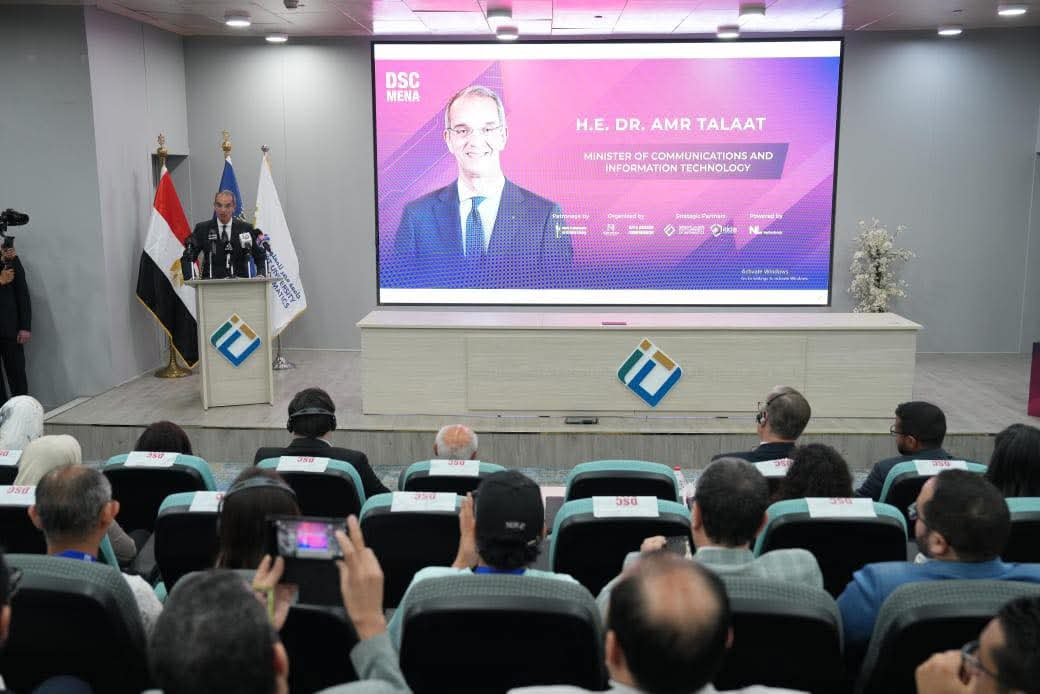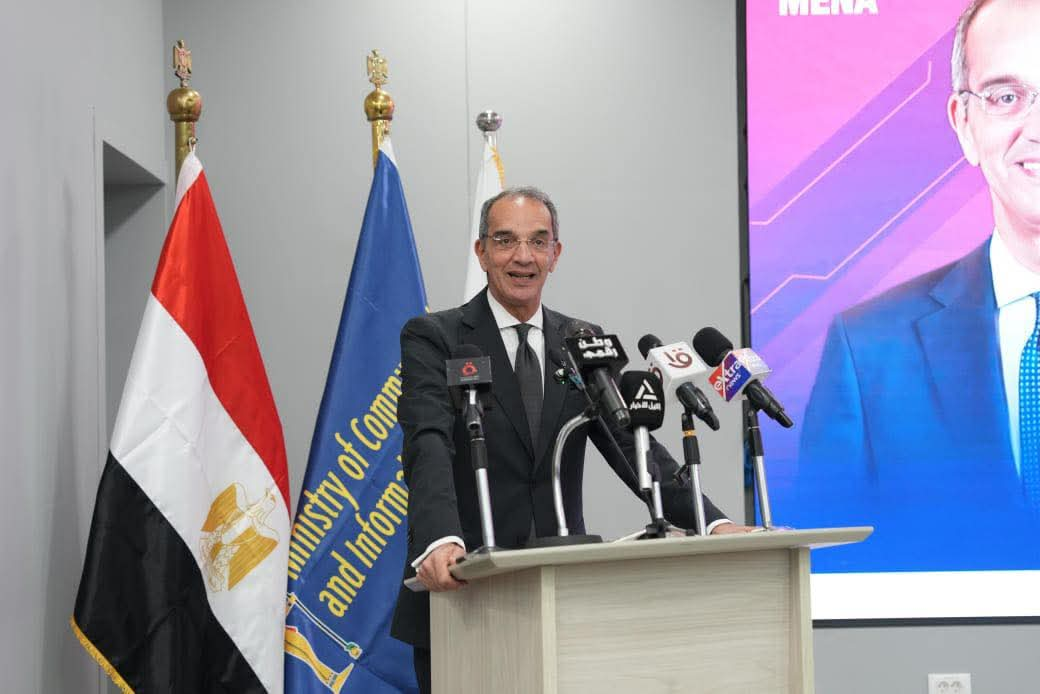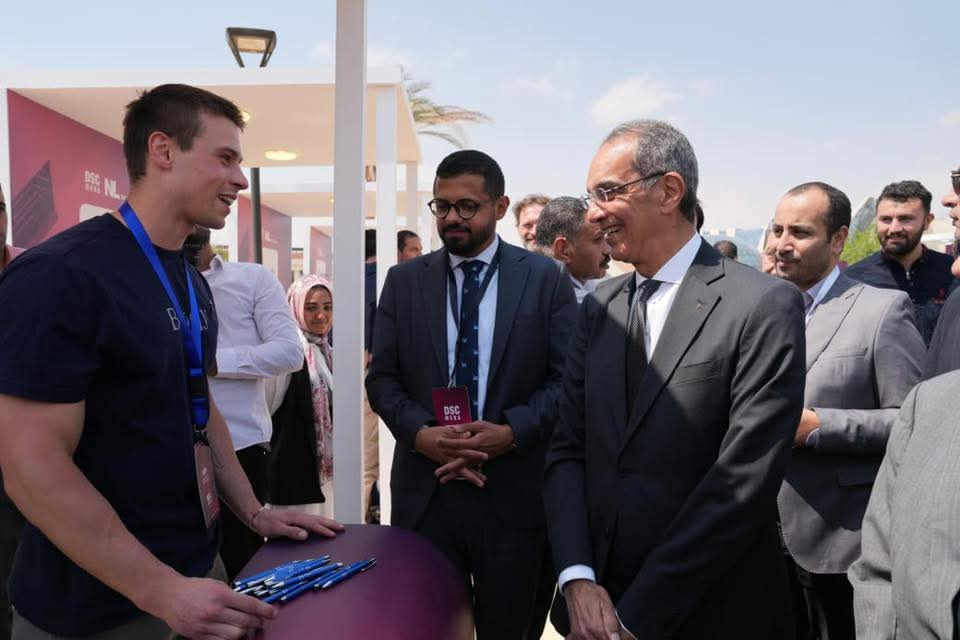
H.E.Dr. Amr Talaat s Witnesses the Closing of the Second Edition of DSC MENA 2025 at EUI
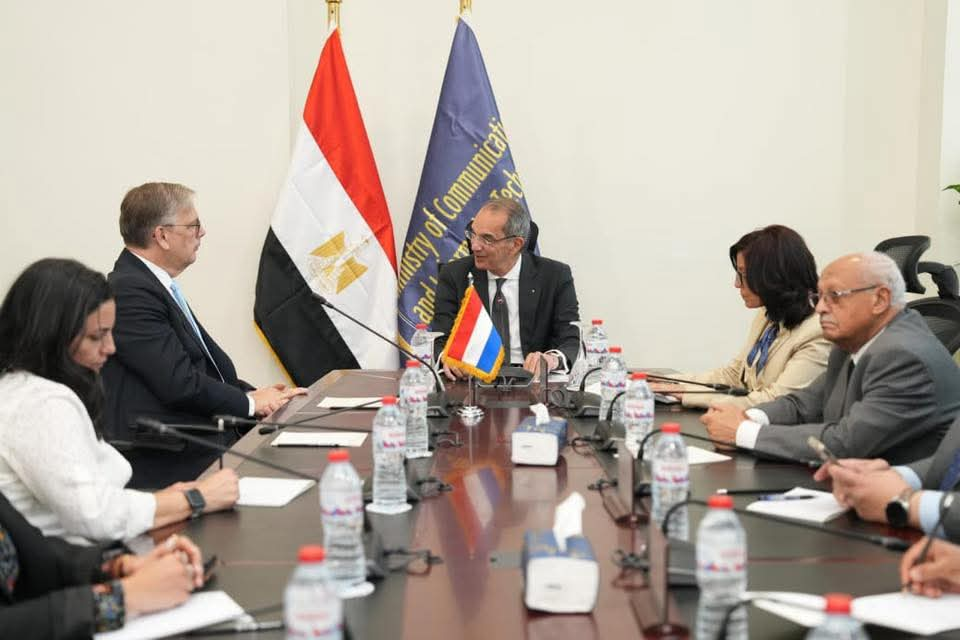
His Excellency, Dr. Amr Talaat, Minister of Communications and Information Technology, attended the closing ceremony of the second edition of the Data Science and Artificial Intelligence Conference for the Middle East and North Africa (DSC MENA 2025), hosted by Egypt University of Informatics (EUI) at the Knowledge City in the New Administrative Capital. The conference was organized by the university in strategic partnership with the Information Technology Industry Development Agency (ITIDA), Ntervento, and the Embassy of the Netherlands in Cairo, under the theme "Empowering the AI Community." The event, which ran from April 10 to 12, brought together over 1,500 participants and 90 distinguished speakers, including policymakers, industry leaders, experts, academics, innovators, and entrepreneurs, all aiming to shape the future of AI in the MENA region.
The conference was also attended by Mr. Peter Mollema, Ambassador of the Netherlands to Egypt, along with EUI’s leadership team. At the beginning of his speech, Dr. Amr Talaat paid tribute to Prof. Reem Bahgat, the late president of Egypt University of Informatics, who passed away just a few days before the conference. He praised her distinguished academic journey, her instrumental role in founding the university, and her clear vision and deep commitment to its mission. He also highlighted her unique ability to balance knowledge, hard work, and visionary thinking, noting that her memory will remain alive in the hearts and minds of everyone who knew or worked with her. Dr. Talaat announced that the university’s auditorium hall will be named in her honor, following an agreement with the Board of Trustees.
Dr. Talaat stressed the ministry’s commitment to hosting this important regional conference for the second consecutive year, in light of the growing global interest in artificial intelligence technologies. He highlighted that since 2019, Egypt has taken significant steps to develop the AI ecosystem, beginning with the establishment of the National Council for Artificial Intelligence, the launch of the National AI Strategy, and the introduction of Egypt’s Responsible AI Charter. He pointed out that AI is no longer confined to the tech community alone but has become a central priority for government institutions, universities, research centers, civil society, and the private sector, all of which seek to harness the power of AI to achieve progress and growth.
Dr. Talaat explained that as part of the first phase of the national AI strategy, the Applied Innovation Center was established to develop practical AI applications for diverse sectors. He also announced that the second edition of the National AI Strategy was launched in early 2025, reflecting a comprehensive roadmap that focuses on developing infrastructure capable of supporting AI-based systems and enabling startups and SMEs to access these resources, striking a balance between data privacy and accessibility, creating AI-driven applications to address challenges in key sectors such as healthcare, agriculture, environment, and water resource management, expanding the pool of qualified AI talent across industries, fostering an innovation-friendly ecosystem to support startups, and establishing strong governance and legislative frameworks to ensure the responsible and ethical growth of AI technologies in Egypt.
Dr. Talaat emphasized that the national AI strategy is designed to achieve concrete and ambitious results, including training more than 30,000 AI specialists between 2025 and 2030, supporting at least 250 AI-focused startups in launching innovative solutions, and enabling more than a quarter of the Egyptian workforce to become proficient in using AI tools to support their organizations’ goals. He also highlighted the importance of raising public awareness about AI’s capabilities, limitations, benefits, and risks.
On the sidelines of the conference, Dr. Talaat held a meeting with Mr. Peter Mollema, Ambassador of the Netherlands to Egypt, to explore ways to strengthen cooperation between the two countries in the ICT sector. The meeting highlighted Egypt’s ongoing efforts to grow its outsourcing industry, nurture digital skills, promote innovation, and support entrepreneurship. Dr. Talaat invited the Ambassador to visit Egypt’s Creativa Innovation Hubs to see firsthand the ministry’s initiatives for developing digital talent and fostering startup growth.
Ambassador Mollema praised Egypt’s advancements in the communications and information technology sector and expressed his admiration for the strong partnership between the two nations. He noted the increasing demand for digital skills in the Netherlands and emphasized the importance of cooperation between the public and private sectors, which is a cornerstone of the Dutch entrepreneurial ecosystem. He also expressed keen interest in exploring Egypt’s startup scene and learning more about the country’s digital innovation landscape.
During the event, Dr. Talaat toured the exhibition held alongside the conference, which showcased the work of both local and international companies as well as startups specializing in artificial intelligence from the MENA region and the Netherlands. The conference is regarded as one of the region’s most prominent technology events, bringing together the AI and data science community to foster innovation and collaboration. Through a rich program of deep-dive discussions covering 25 topics, the event created opportunities for networking and exploring the latest trends and breakthroughs in AI and data science.
The conference program offered participants a comprehensive view of the field, featuring technical discussions on the latest developments in AI, big data analytics, augmented analytics, natural language processing, generative AI, prompt engineering, data visualization, machine learning deployment, data engineering, computer vision, and robotics. It also addressed the societal and governance aspects of AI, examining how to establish responsible frameworks and manage its social impact. On the business side, the conference explored how AI applications are transforming industries and reshaping companies' futures.
The event also featured a startup pitch competition, offering companies specializing in AI solutions for the MENA region the opportunity to connect with potential investors. A delegation of Dutch startups participated in the competition, supported by the Embassy of the Netherlands in Cairo, as part of broader efforts to expand cooperation between Europe and the MENA region in AI and digital technology.
